In a recent article on Aljazeer, author Maximilian Hess (*) argued that if the next US president decides to wage an economic war on two fronts, with both Russia and China, this will push Beijing even closer to Moscow's position.
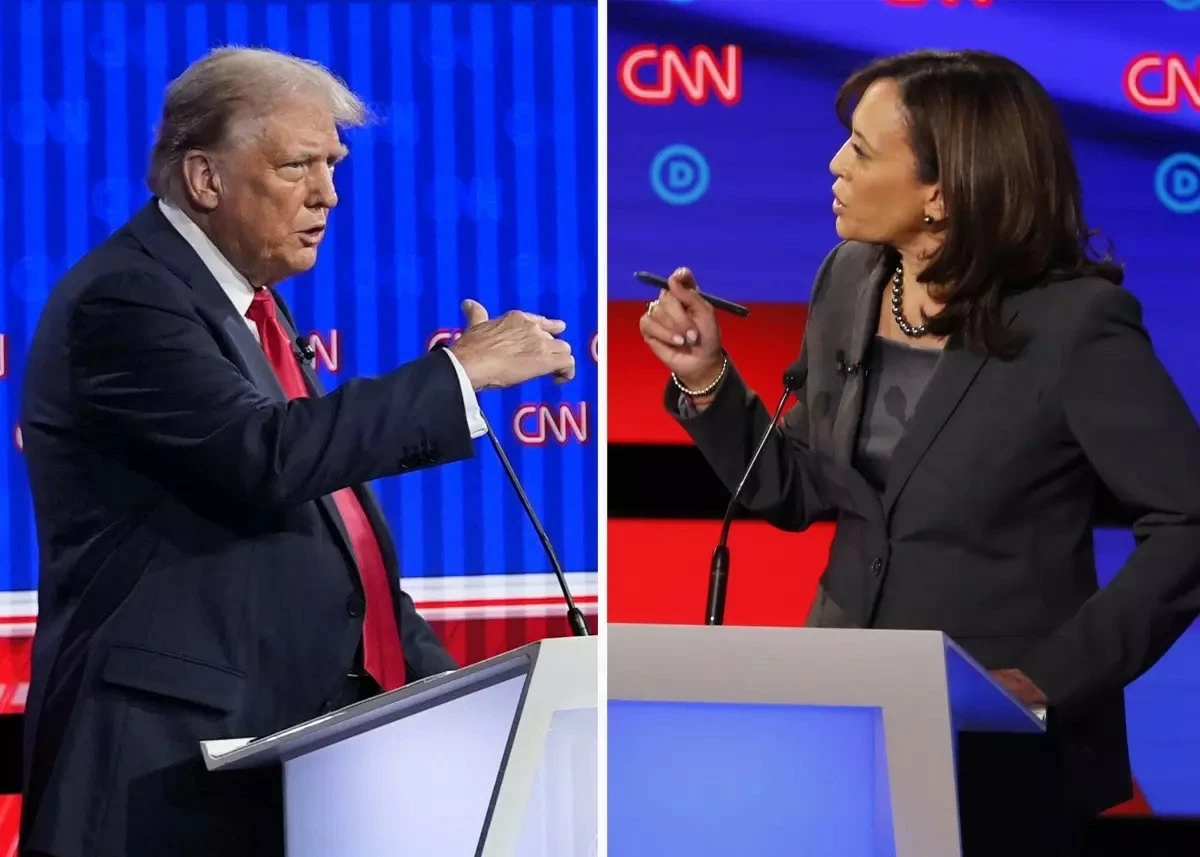 |
| The two US presidential candidates, Mr. Donald Trump and Ms. Kamala Harris, seem to have the same views on the China issue. (Source: AP) |
Common concerns
As the race for the US presidency heats up, the two candidates – Kamala Harris and Donald Trump – have clashed on a range of issues. Whether it’s immigration, reproductive rights or social spending, both have sought to rally their bases by attacking each other on what they see as voters’ key concerns.
There is one issue, however, where they seem to agree — China. While the two candidates have different visions of how to pursue US policy toward a country that is challenging Washington’s standing on the world stage, they seem to agree that it is a counterweight that must be contained.
So how do the two candidates propose to do that?
Vice President Harris appears poised to continue President Joe Biden’s policies. She will seek to strengthen America’s longstanding security partnerships in Asia by building economic alliances, while also wielding a “big stick” against those who seek to violate Washington’s sanctions even in partner countries.
The US Vice President is likely to continue to promote "de-risking" from China, a policy of moving manufacturing out of the Northeast Asian country that the Biden administration has implemented, as something that could benefit third countries.
Democrats also want to put the CHIPS and Deinflation Act (which promotes domestic microchip manufacturing and clean energy) at the center of not only the domestic agenda but also the restoration of jobs and industries that have been “stolen” by Beijing.
In contrast, former President Donald Trump doubled down on his “America First” campaign slogan and went even further. His broader economic policy was based on a return to broad 19th-century-style tariffs on most imports to the United States, especially Chinese goods.
It is by adopting these policies that he has significantly influenced US geo-economic policy. Today, no faction of either the Democratic or Republican parties calls for active cooperation with Beijing.
The pro-free trade agenda that dominated both parties in the 25 years between the fall of the Soviet Union and Mr. Trump’s rise to power has been quietly abandoned. Both Mr. Trump and Ms. Harris’ campaigns have offered tactically different but similar strategic visions: protecting American economic interests by promoting decoupling from China.
When Russia "intervenes"
However, neither considers the fact that an increasingly powerful Russia is also a threat to the Washington-dominated international economic order, and that confronting both Beijing and Moscow at the same time would be unwise.
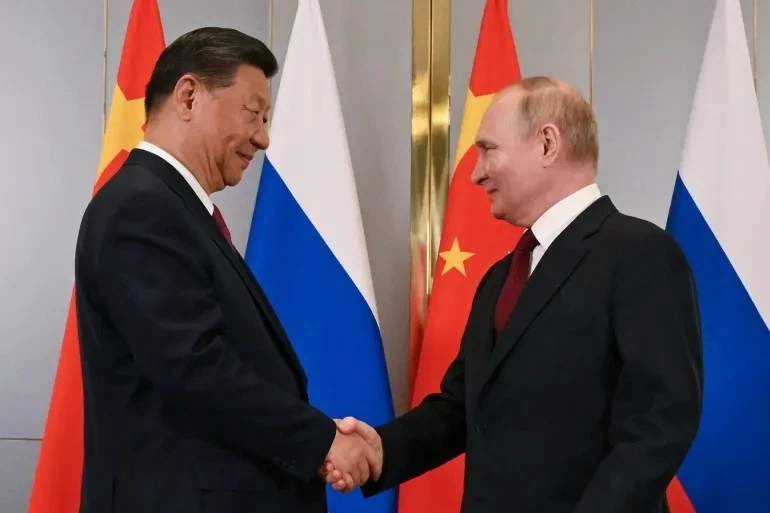 |
| Russian President Vladimir Putin and Chinese President Xi Jinping during a meeting on the sidelines of the Shanghai Cooperation Organization summit in Astana, Kazakhstan, July 3, 2024. (Source: Sputnik/AP) |
The US must recognise that China is far more important economically to countries caught up in this global competition, including allies. This is true for Georgia and Kazakhstan, which have not accepted the Western sanctions regime against Moscow but have complied with some of it, as well as for Germany and the United Arab Emirates, for which Beijing is as important a trading partner as Washington.
The “middle corridor” of Eurasian trade that the West seeks to promote to contain Russia’s influence in the region will be meaningless without China’s participation. Moreover, pushing Beijing too hard risks provoking a backlash that could undermine or even reverse some of the progress made in curbing Moscow’s geoeconomic agenda.
It is important to point out here Russia’s growing dependence on its powerful neighbor, China. Since Moscow’s military intervention in Ukraine (February 2022), China has become one of Russia’s leading trading partners. Beijing also provides Moscow with access to international markets (which are limited by Western sanctions), by facilitating the use of Chinese yuan by Russian companies in transactions with businesses in Latin America, Asia and Africa.
Yet despite escalating sanctions on Chinese trade under the Biden administration, Beijing appears to have yet to fully embrace Moscow’s vision of world order.
China has reportedly been “reluctant” to directly challenge US sanctions on Russia or push hard for a new currency bloc to “dethrone” the US dollar’s dominance.
For example, Chinese banks have significantly cut back on yuan transactions with Russian counterparts after the US increased its threats of secondary sanctions. Russian media have also noted this challenge.
Even on major economic projects, such as the construction of a major new gas pipeline between Russia and China called Power of Siberia 2, Beijing has been reluctant to overcommit. Despite agreeing in principle just weeks before the conflict broke out in Ukraine, there has been no progress in negotiations around the project’s development. Mongolia, where the pipeline is scheduled to pass, recently indicated that it does not expect the project to be completed for another four years.
If the next US president decides to wage a two-front economic war against both Russia and China, it will push Beijing closer to Moscow’s position. China now sees itself as the legitimate center of the emerging international economic order, replacing the US. Russia, on the other hand, believes that the current international economic order should be dismantled.
While the Russian economy has no chance of becoming a power like the United States, China is certainly a major competitor to both the West and Washington.
It makes more sense to pursue increased cooperation with China now, or at least try to keep Beijing’s support for Russia as limited as possible. This logic would hold true even for the most hawkish US voices on China—not focusing on Russia would put the US and its allies in a much stronger position to compete with China in the future.
(*) Maximilian Hess is a fellow at the Foreign Policy Research Institute based in Philadelphia, USA.
Source: https://baoquocte.vn/tong-thong-my-tiep-theo-khong-nen-tao-cuoc-chien-kinh-te-dong-thoi-voi-ca-trung-quoc-va-nga-that-la-ly-do-284199.html


![[Photo] General Secretary To Lam concludes visit to Russia, departs for Belarus](https://vphoto.vietnam.vn/thumb/1200x675/vietnam/resource/IMAGE/2025/5/11/0acf1081a95e4b1d9886c67fdafd95ed)
![[Photo] General Secretary To Lam meets and expresses gratitude to Vietnam's Belarusian friends](https://vphoto.vietnam.vn/thumb/1200x675/vietnam/resource/IMAGE/2025/5/11/c515ee2054c54a87aa8a7cb520f2fa6e)
![[Photo] General Secretary To Lam arrives in Minsk, begins state visit to Belarus](https://vphoto.vietnam.vn/thumb/1200x675/vietnam/resource/IMAGE/2025/5/11/76602f587468437f8b5b7104495f444d)



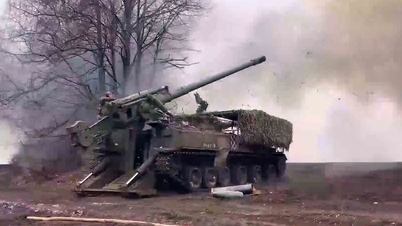




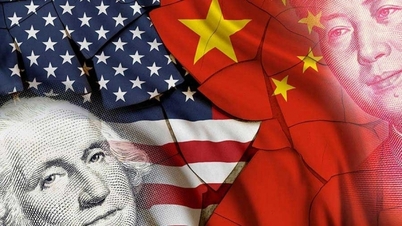

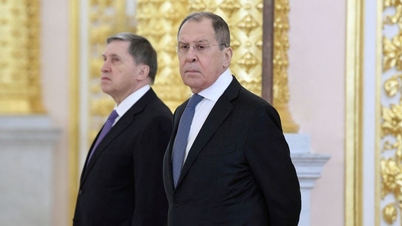
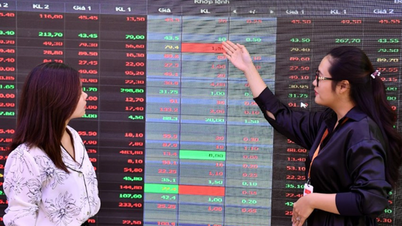


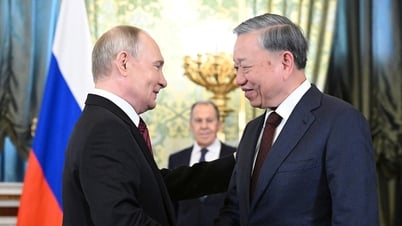
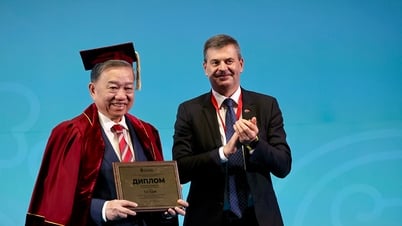


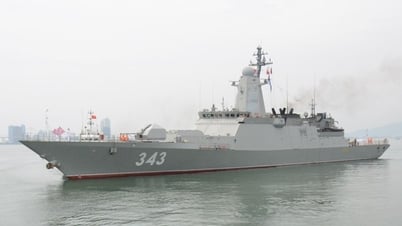




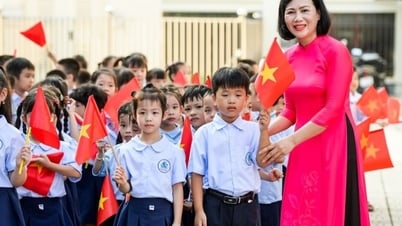


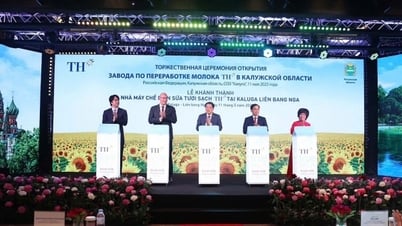


![[Photo] National Assembly Chairman Tran Thanh Man attends the Party Congress of the Committee for Culture and Social Affairs](https://vphoto.vietnam.vn/thumb/1200x675/vietnam/resource/IMAGE/2025/5/11/f5ed02beb9404bca998a08b34ef255a6)















































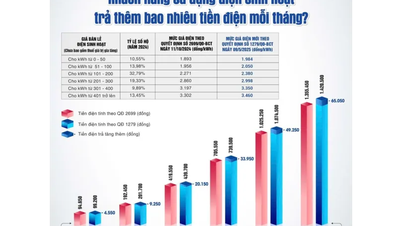

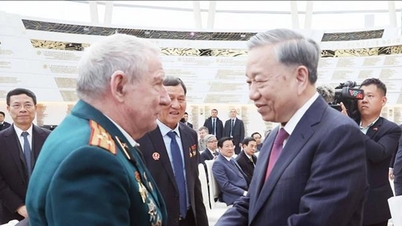














Comment (0)